
Community Programs The Yoga Project
Mission
We are focused on building community capacity for low mobility populations by sharing the practices of Yoga as tools for the management and prevention of musculoskeletal pain.
Vision
To globally inspire self-directed, self-led, and self-sustaining communities, who experience low mobility, to use the practices of Yoga for active and preventative self-care and pain management.
Goals
By creating and disseminating this model to the yoga community we hope to expand its reach to the million people worldwide suffering from spine pain who can benefit from yoga.
Make a donation.
About
Yoga has been found to be effective in the prevention and management of spinal and musculoskeletal disorders. World Spine Care has launched the WSC Yoga Project to use yoga as a means of addressing the crippling impact of spinal disorders in underserved regions around the world.
WSC has recruited the expertise of a team of yoga teacher trainers to develop a curriculum to train local students in participating countries. This capacity-building initiative will enable members of the community to teach the classes in the local language and cultural context, thus ensuring the relevance and success of the yoga program.
This project has been implemented in association with the existing World Spine Care clinics as one of the community prevention and rehabilitation programs.
Our Team
How it Started
Erin Moon and Barrie Risman launched the WSC Yoga Project in Botswana on April 25th, 2016 with the first two-week teacher training program being taught to students from Mahalapye and Shoshong, Botswana.
If you are interested in helping out, or have any ideas or comments about the Yoga Project, we can be reached at yoga@worldspinecare.org.
Latest News from the Yoga Project
Our Core Values
We believe in providing access to those experiencing low mobility and pain who are seeking out preventative and active self-care and pain management.
We strongly believe that belonging to a self-sustained community is an essential component of successful active self-care and good living.
We aim to teach yoga in a respectful, non-secular way that both honors the roots of Yoga and is adaptive to the cultural context in which we’re operating.
Our programs are informed and updated as much as possible by current research on mobility, physiology, and psychology.
We believe in a multifaceted approach that combines movement, meditation, and breathing exercises practiced in a safe and supportive setting.
We believe that stable and mobile joints are fundamental to long-term, effective pain management, and that joint stability is a key component for addressing low mobility.
We believe that people experiencing pain and low mobility are better served when their network of providers understands what, how, and why they are engaging in Yoga practices.
We believe in providing access to resources, research, and ongoing education for those experiencing pain and low mobility as well as to their providers.
How We Work/What We Offer
We work under the auspices of World Spine Care.
We only work with populations who have asked for a preventative/active self-care and pain management modal.
We work in our respective home countries and in global communities where World Spine Care has an existing presence with potential for expansion beyond WSC clinical modal into interested and supportive communities.
We train people who are interested in using the benefits of the Yoga Project protocol to contribute to their community and themselves.
We adapt to the individual needs of the communities we are working with; cultural norms and practices are incorporated into the program i.e. dance, song, physical appropriateness of postures, posture names, etc.
We are a non-secular program. Meaning: we are open to the beliefs of all the communities we serve and happily encourage worship where appropriate but do not come in with any religious overlay or agenda. We also teach that the history of the practice’s roots comes from India and that there are many more practices, not included in the YP protocol, that can be explored individually.
We adapt the Yoga Project protocol as new information about mobility, physiology, psychology is made available to us through research.
We offer practices of mindfulness-based upon research via mindfulness-based stress reduction and the 3000 years of Yogic practices for pain and stress management.
We offer practices of breath based upon vagal nerve research etc and the 3000 yrs of Yogic practices for pain and stress management.
We offer poses that explore a stable, long-term, functional range of motion for lower mobility populations. We encourage adapting to offer low- to no-pain movements to those experiencing pain.
We offer multiple levels of training as is appropriate for different levels of mobility and pain. Currently, our offerings include a level one training with a larger percentage of chair-supported postures and a level two training with more standing postures and greater physical challenge.
We also offer our programs to MD, PT, OT, and chiropractors as well as already trained Yoga Instructors as continuing education to better serve their communities and patients.
We are an online resource for low mobility and pain populations worldwide for at-home practice and capacity building using the practices of Mindfulness, Breath, and Posture.


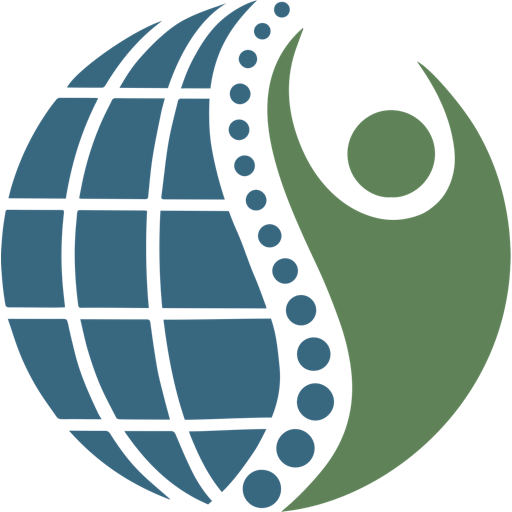
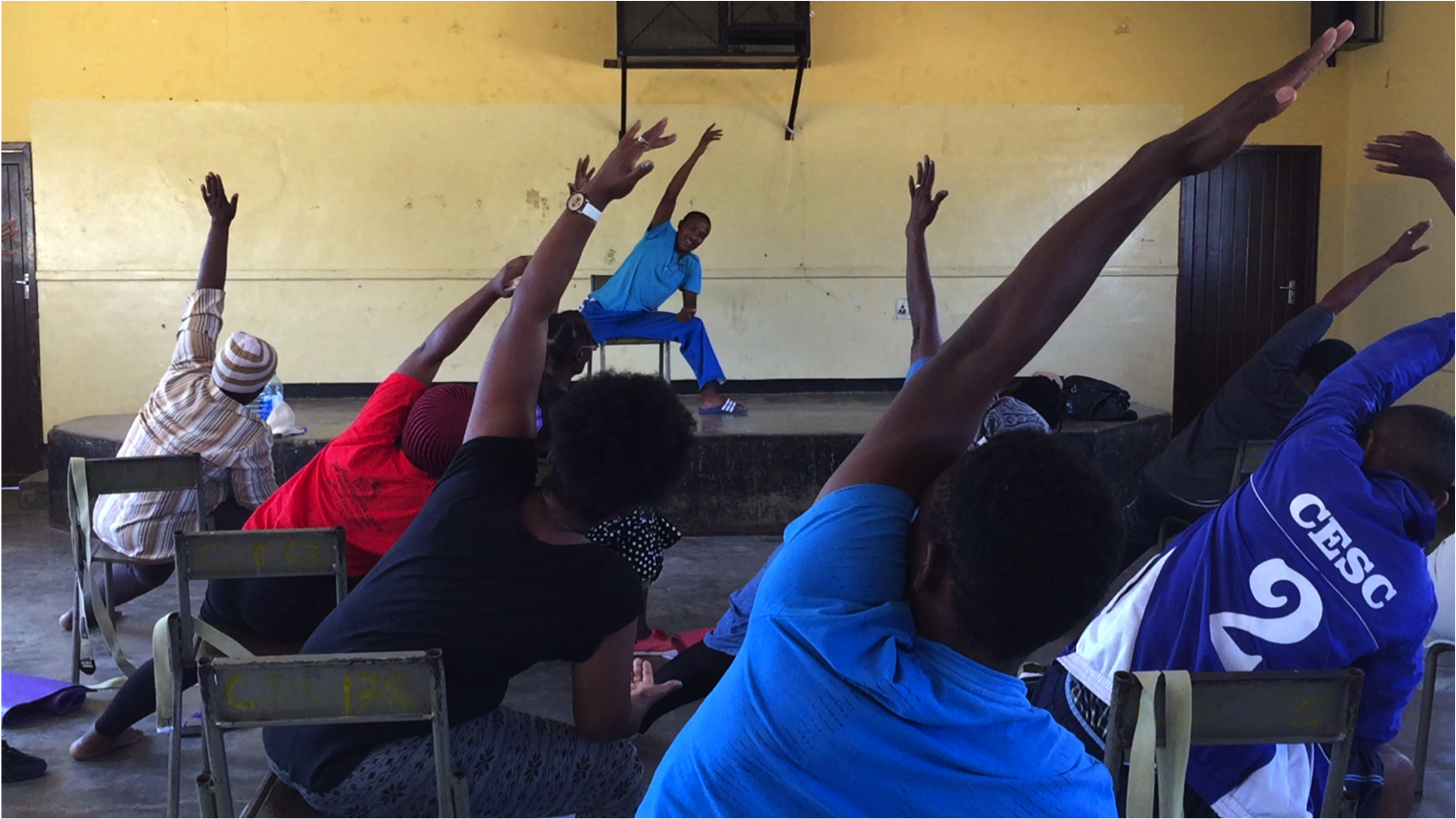


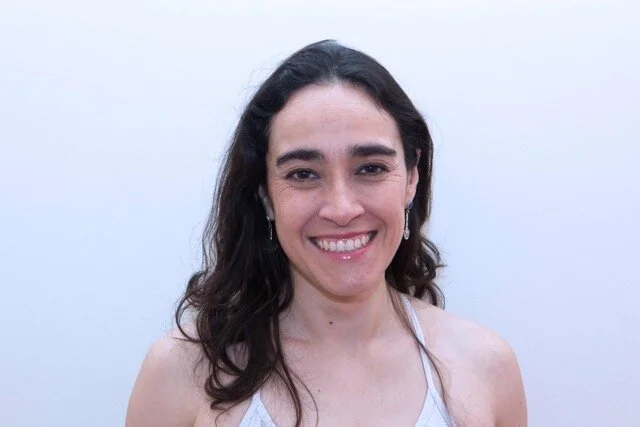

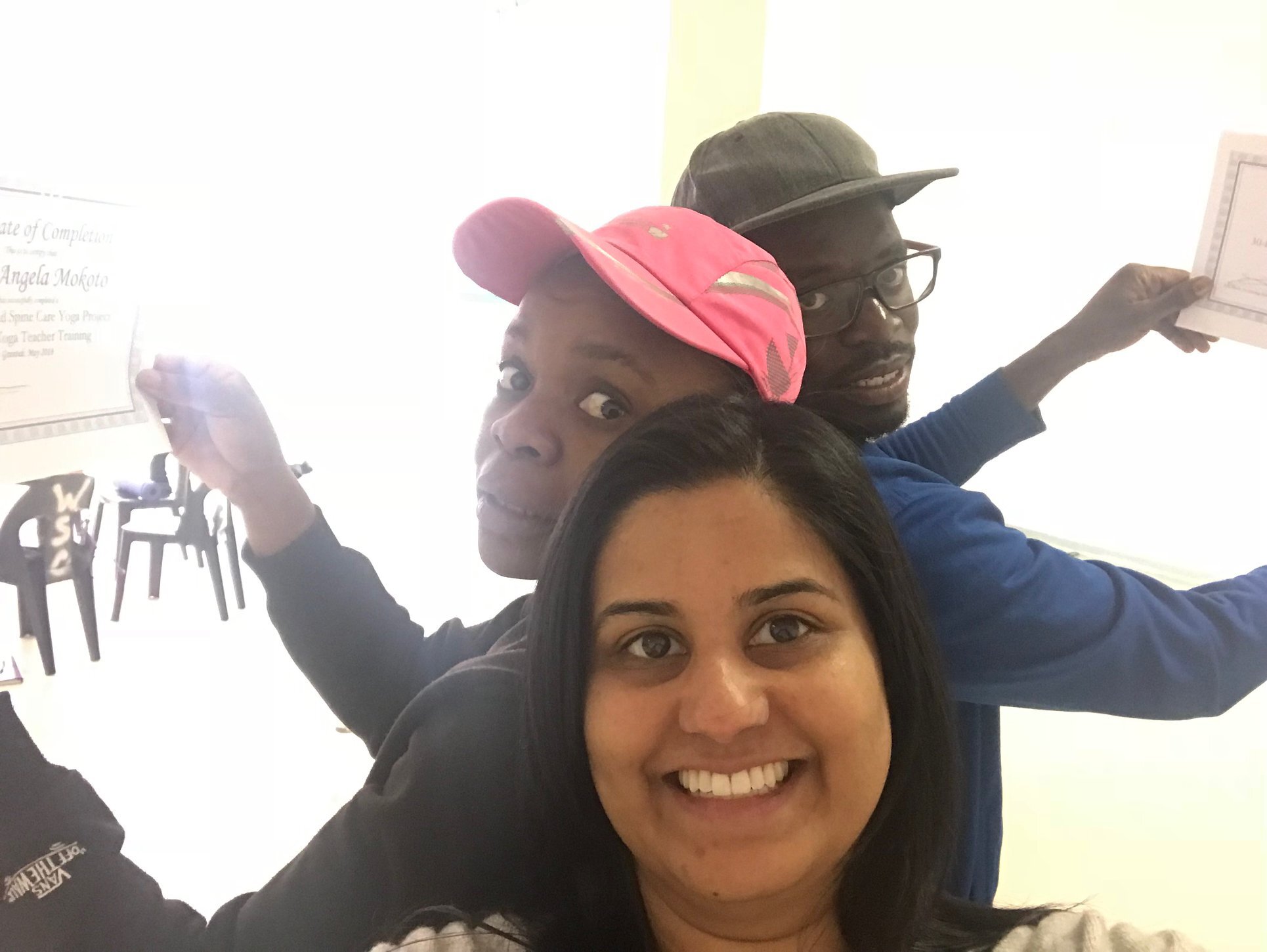
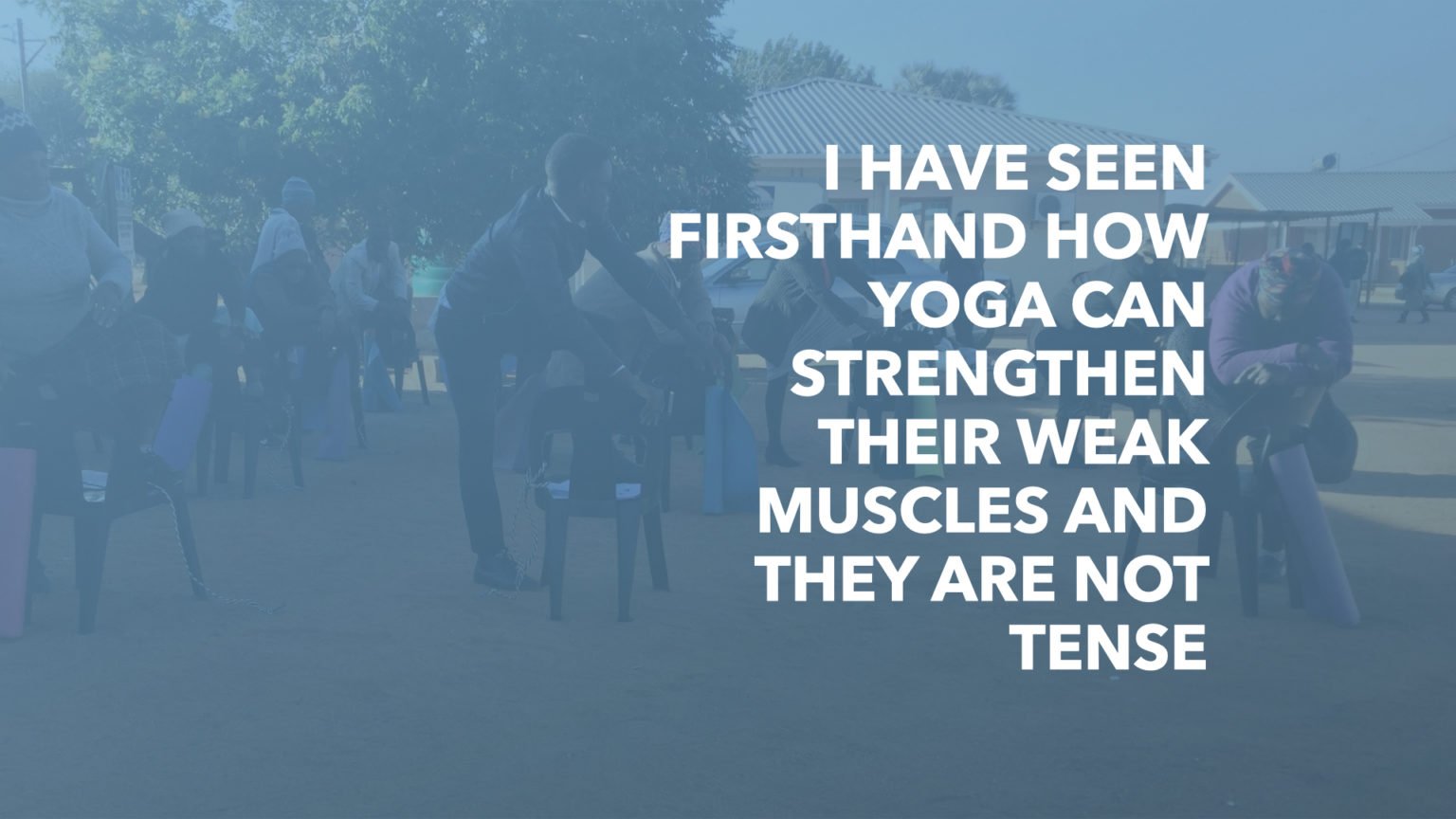
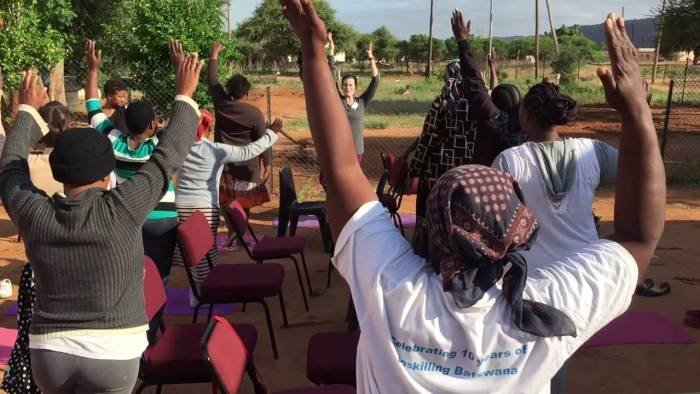
Since opening the newest World Spine Care clinic in Botswana six months ago, Dr. Mufudzi Chihambakwe has been busy building a community around spine care. As clinical coordinator for the BH3 Clinic, Mufudzi has brought patients and community members together for physical activity and education–including a hilltop yoga session for World Spine Day.